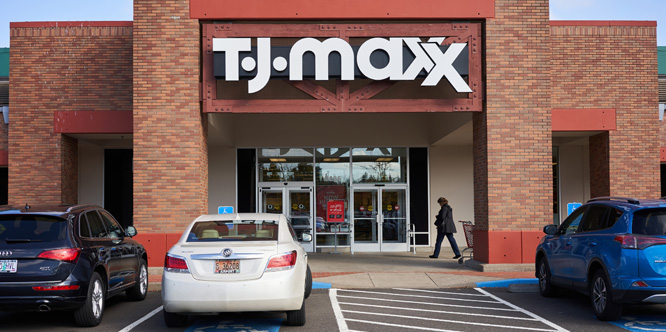
Photo: Getty Images/hapabapa
Analysts have upgraded TJX Cos. and Ross Stores in recent days as the uncertainty and downturn caused by the coronavirus spurs defensive measures from full-line retailers.
In upgrading TJX to “outperform,” Credit Suisse analyst Michael Binetti wrote in a note to clients that he believes the widespread cancellation of orders by full-line retailers “will create the greatest buying environment for off-price in a decade.” Conversations with brands, including those working to reduce their off-price exposure in recent years, indicate they expect to re-engage to clear inventory starting in the second half of 2020.
Moreover, Mr. Binetti expects the inventory overhang to linger well into 2021. “Like in the last recession, the consumer will continue value-seeking behavior even as economic conditions improve,” he wrote.
In upgrading TJX to “outperform” RBC Capital’s Kate Fitzsimons said she believes the COVID-19 pandemic will accelerate consolidation among broad-line retail. The analyst wrote in a note, “With retail bankruptcies likely to mount in the coming months and further industry consolidation ahead, we expect big to get bigger, with TJX likely to be the biggest share beneficiary globally.”
In a note to clients, Goldman Sachs’ Alexandra Walvis also pointed to the favorable environment for excess inventory as well as the flexible business models of off-pricers. She further highlighted off-price’s resiliency during periods of economic weakness, as witnessed by significant market share gains by the channel during the Great Recession.
Ms. Walvis wrote, “We believe this is due to the value positioning of these businesses, which benefit from consumer downtrading during periods of weaker consumer incomes. We would expect similar dynamics should a period of consumer spending weakness follow COVID-19 disruption.”
The upgrades come despite both retailers facing near-term cash flow pressures due to a lack of e-commerce at Ross Stores and minimal online business at TJX amid the store closures. Both generally have strong balance sheets and have taken steps in recent days to shore up liquidity.
Other risks for both include heightened direct competition, store saturation and vendors eventually focusing on reducing off-price exposure.
- The TJX Companies, Inc. Provides COVID-19 Update – TJX
- Ross Stores Provides Additional COVID-19 Business Update – Ross Stores
- Ross Stores Provides Additional COVID-19 Related Update, Announces Closure Of All Store Locations – Ross Stores
- TJX Gets Upgrade at RBC on Strong Balance Sheet – TheStreet
- Goldman upgrades Ross Stores, downgrades Under Armour after coronavirus disrupts retail – MarketWatch
- Credit Suisse Upgrades The TJX Companies (TJX) to Outperform – Street Insider


Leave a Reply
You must be logged in to post a comment.